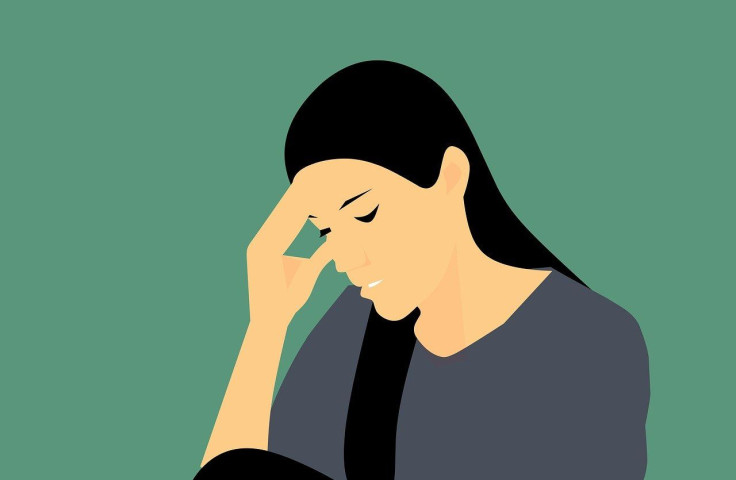Migraine Management: Healthy Habits To Help Handle Migraines
KEY POINTS
- Migraines can be quite painful and even debilitating
- It is one of the main causes of disability worldwide, according to CDC
- There are simple remedies and lifestyle changes that can help manage migraines
If you've ever experienced the pain of having a migraine, know that you're not alone. Millions of people worldwide suffer from the condition.
Migraines can be debilitating. It causes an intense pulsing or throbbing pain in the head that may be accompanied by nausea and sensitivity to sounds and lights.
In fact, it is one of the main causes of disability worldwide, the Centers for Disease Control and Prevention (CDC) said. In the U.S., for instance, a study on people with migraines reported that over half of them had to take bed rest or reduce their workload or school activities because of the condition.
While there are medications that can reduce migraine symptoms, there are also some simple things that people can do to prevent migraines or at least reduce their severity before they even start.
Here are some tips to getting ahead of migraines, courtesy of the Mayo Clinic, Healthline, and the Office on Women's Health (OWH).
Identify And Avoid Food That Trigger Migraines
According to Healthline, there are certain food and drink items that have been known to trigger migraines, including chocolate, processed food, food with monosodium glutamate (MSG), certain cheeses, and some dairy products.
However, what triggers a migraine in one person may not trigger it in another. To find out which food items can trigger your condition, the Mayo Clinic recommends starting a food journal. Once you identify them, try keeping them out of the diet for a while and see if they are really your trigger food.
It's also important to adopt healthy eating habits, which include being consistent with regular eating times and avoiding fasting as the Mayo Clinic noted that fasting actually increases the risk of getting migraines.
Reduce Stress Levels
It's probably not a surprise, but stress and migraines actually go together. According to the OWH, migraines are more common during stressful times. As such, trying to reduce or healthily cope with one's stress may help manage migraines.
Coping with stress may be in the form of getting a massage, doing things that one enjoys, taking a break once in a while, or simply taking deep breaths. The OWH also noted other methods such as acupuncture, counseling, and relaxation as a means to relieve one's stress.
But it's also important to prevent stress in the first place by managing one's time wisely. Mayo Clinic recommends simplifying one's life by not looking for ways to add more activities to fit into the day and even adjusting one's attitude.
"If you find yourself thinking, 'This can't be done,' switch gears," Mayo Clinic recommends. "Think instead, 'This will be tough. But I can make it work.'"
Stay Physically Active
Exercise has a multitude of health benefits, and one of them is reducing the number of migraine attacks. Whether it's in the form of swimming, jogging, or cycling, staying physically active can help manage migraines. However, it's important to take things slowly as the Mayo Clinic also noted that vigorous exercise may also lead to migraines.
People may try yoga, which can be added as a complementary therapy for migraines, according to Healthline. In a 2020 study where researchers tried to see whether adding yoga to their routines would benefit migraine patients, it was found that the participants who did yoga had a 48% decrease in the frequency of their headaches and a 47% decrease in their average use of pills.
Try Natural Remedies
People suffering from migraines may also want to try some natural remedies. Healthline noted lavender and peppermint oils as some of the remedies that can reduce migraine pain. The outlet cited a study establishing the efficacy of applying peppermint oil in the temples and forehead in reducing migraine-associated pain and nausea, as well as a study saying that lavender oil provided faster relief among the migraine patients who inhaled it compared to those who inhaled a placebo.
The outlet also noted that ginger can relieve nausea related to various conditions, mentioning a study wherein ginger reduced the severity and duration of migraine just as well as the common prescription drug sumatriptan.
Have Proper Sleep
Getting proper sleep is important for overall health and well-being, but it's also good for preventing migraines. According to the Mayo Clinic, poor sleep may trigger migraines as well.
With many individuals having a hard time sleeping, there are some things that people can do to get better sleep, such as following a regular sleep schedule, limiting distractions close to bedtime, and engaging in relaxing activities that can help one feel at ease and get better sleep.
Of course, it's important to consult a doctor when one is experiencing migraines, whether it's to consider possible medications or other remedies and prevention methods.

© Copyright IBTimes 2025. All rights reserved.






















